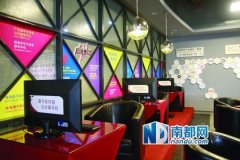Domestic coffee costs eight home-made
"in a coffee shop, it is impossible for a cup of coffee under 60 yuan to be ground with imported coffee beans," Liu, the manager in charge of joining the business of Shangdao Coffee Company, told reporters. According to Manager Liu, due to the need for a series of additional fees for imported coffee beans, the cost of coffee beans has increased several times. as a result, almost all domestic medium-and low-grade coffee is made from domestic coffee beans, and this grade of products account for more than 80% of the entire coffee market.
At the same time, Mu Li, president of Nestl é Greater China, declared at Nestle's celebration of the 10th anniversary of the establishment of the Nestle coffee factory in Dongguan, Guangdong: "Chinese coffee farmers have grown and produced high-quality small seed coffee beans. Nestl é uses the world-class latest technology to process them into mellow and delicious coffee." Since 2002, Nestl é has acquired more than 3000 tons of high-quality small seed coffee beans produced in Yunnan. According to data provided by Nestl é, Nestle instant coffee now accounts for 80% of the entire Chinese coffee market.
Shangdao Coffee Manager Liu revealed that at present, the average price of Shangdao coffee in Beijing is 25 yuan per cup, the average daily sales of coffee per store is about 4000 yuan, while the average net profit of a cup of coffee is generally between 50% and 60%. According to data provided by Nestl é, the average person consumes four cups of coffee per person per year in Chinese cities, and only 20 cups per person per year, even in big cities such as Beijing and Shanghai. In Japan and Britain, each person drinks an average of one cup of coffee a day. Mu Li, president of Nestl é Greater China, said that China, which has a strong tea culture, has broad coffee consumption potential and is bound to become one of the largest coffee markets in the world. Mu Li said: "Japan and Britain are both world-famous tea culture countries, which have developed into a huge coffee market." he is confident that the "tea" in the hands of the Chinese will be replaced by "coffee."
Important Notice :
前街咖啡 FrontStreet Coffee has moved to new addredd:
FrontStreet Coffee Address: 315,Donghua East Road,GuangZhou
Tel:020 38364473
- Prev

The export of coffee beans
Every year, 5 million to 6 million tons of fresh coffee beans are produced, most of which take a long journey, starting from the plantations, being carried on animals, and then by land, water, rail, and until today's aviation system reaches all parts of the world.
- Next

The first start-up coffee opens with tens of millions of dollars of investment waiting for a good project.
If you want to start a business over a cup of coffee or even meet Bole investors, where will you go? A few days ago, Zhuhai's first coffee shop as the carrier of the open business incubation platform opened, the South Software Park Venture Coffee, Entrepreneurship Dream Factory officially launched. The cooperative investment institutions also set up a $10 million angel investment fund to wait for outstanding projects.
Related
- Can I make coffee a second time in an Italian hand-brewed mocha pot? Why can't coffee be brewed several times like tea leaves?
- Hand-brewed coffee flows with a knife and a tornado. How to brew it? What is the proportion of grinding water and water temperature divided into?
- What is the difference between Indonesian Sumatra Mantinin coffee and gold Mantinin? How to distinguish between real and fake golden Mantelin coffee?
- What does bypass mean in coffee? Why can hand-brewed coffee and water make it better?
- Unexpected! Ruixing Telunsu lattes use a smoothie machine to foam milk?!
- % Arabia's first store in Henan opens into the village?! Netizen: Thought it was P's
- Does an authentic standard mocha coffee recipe use chocolate sauce or powder? Mocha Latte/Dirty Coffee/Salty Mocha Coffee Recipe Share!
- What is the difference between Vietnam egg coffee and Norway egg coffee? Hand-brewed single product coffee filter paper filter cloth filter flat solution!
- What is the difference between sun-cured and honey-treated coffee? What are the differences in the flavor characteristics of sun-honey coffee?
- How to make Italian latte! How much milk does a standard latte use/what should the ratio of coffee to milk be?

